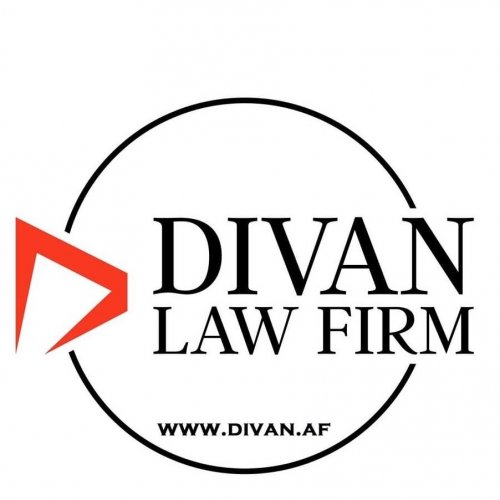Best Immigration Lawyers in Kabul
Share your needs with us, get contacted by law firms.
Free. Takes 2 min.
List of the best lawyers in Kabul, Afghanistan
Afghanistan Immigration Legal Questions answered by Lawyers
Browse our 1 legal question about Immigration in Afghanistan and read the lawyer answers, or ask your own questions for free.
- Afghan SIV Case
- I have an SIV Case right now with Come designee under review but my question in August 2020 is when foreign Countries withdraw their troops from Afghanistan and the United States announced they will help with Afghan Allis In 2008 I worked as a Safety and Health Officer for ECCI... Read more →
-
Lawyer answer by SJ Law Experts
SJ Law Experts, Islamabad Thank you SJ Law Experts, Islamabad [Advocates, Legal Advisors & Immigration Lawyers]
Read full answer
About Immigration Law in Kabul, Afghanistan
The legal framework of immigration in Kabul, Afghanistan, is governed by the central government under the Afghan Civil Code, Immigration Act, and Refugee Act. These laws deal with all issues concerning foreigners' entry, stay, employment, and exit. The processes can be complex, and documentation requirements stringent. People who wish to stay for employment or investment, seeking asylum, or wanting residence permits should ensure they understand the system to avoid legal complications.
Why You May Need a Lawyer
There are several circumstances where you may need immigration legal assistance in Kabul. If you're applying for any kind of Visa, a lawyer can help you understand what documents you need and how to avoid administrative delays. If you're seeking asylum, a lawyer will help you understand your rights and guide you on the best approach to take. Even if you're trying to start a business or work in Kabul, a lawyer's expertise will be crucial in navigating the procedures and ensuring your stay in the country is legal and above board.
Local Laws Overview
The key parts of immigration-related laws in Kabul require foreigners to have valid documentation for entry and stay in the country. If intending to work or do business, foreigners are required to have a work permit and business license respectively. Asylum seekers should follow a designated process under the Refugee Act. Non-compliance with these laws can lead to penalties, including deportation. It's also crucial to be aware that foreigners must respect all local laws during their stay in the country, and any violations could impact their immigration status.
Frequently Asked Questions
How do I apply for a work permit in Kabul, Afghanistan?
To apply for a work permit, one must submit relevant documents including a valid passport, residency permit, a letter from the employing company, and professional qualifications to the Ministry of Labor, Social Affairs, Martyrs and Disabled.
Can I apply for asylum upon arrival in Kabul, Afghanistan?
Yes, if you fear persecution in your home country due to reasons mentioned under the Refugee Act, you can apply for asylum. However, it is recommended to seek legal assistance in this matter.
What happens if I overstay my visa?
Overstaying your visa is considered a legal offense and can result in penalties, including deportation and restrictions on future applications.
Can I own a business as a foreigner in Kabul, Afghanistan?
Yes, foreigners can own businesses, but they have to obtain the necessary business license and follow the regulations set for foreign investors.
What should I do if my immigration status changes while I am in Kabul, Afghanistan?
If your immigration status changes during your stay, you should notify the Ministry of Refugees and Repatriation immediately and follow their instructions.
Additional Resources
The Ministry of Refugees and Repatriation, Ministry of Foreign Affairs, Ministry of Labor, Social Affairs, Martyrs, and Disabled are the main government branches that deal with immigration. They provide resources and information that can help an individual understand the legal framework of immigration in Kabul, Afghanistan.
Next Steps
If you require legal assistance in immigration matters, it's best to consult with a lawyer who specializes in immigration law in Kabul. They will guide you through the processes, help with required documents, and ensure you are in accordance with all relevant immigration laws in Kabul, Afghanistan.
Lawzana helps you find the best lawyers and law firms in Kabul through a curated and pre-screened list of qualified legal professionals. Our platform offers rankings and detailed profiles of attorneys and law firms, allowing you to compare based on practice areas, including Immigration, experience, and client feedback.
Each profile includes a description of the firm's areas of practice, client reviews, team members and partners, year of establishment, spoken languages, office locations, contact information, social media presence, and any published articles or resources. Most firms on our platform speak English and are experienced in both local and international legal matters.
Get a quote from top-rated law firms in Kabul, Afghanistan — quickly, securely, and without unnecessary hassle.
Disclaimer:
The information provided on this page is for general informational purposes only and does not constitute legal advice. While we strive to ensure the accuracy and relevance of the content, legal information may change over time, and interpretations of the law can vary. You should always consult with a qualified legal professional for advice specific to your situation.
We disclaim all liability for actions taken or not taken based on the content of this page. If you believe any information is incorrect or outdated, please contact us, and we will review and update it where appropriate.
Browse immigration law firms by service in Kabul, Afghanistan
Kabul, Afghanistan Attorneys in related practice areas.








